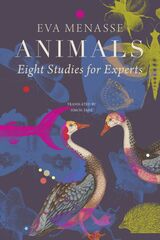20 start with U start with U
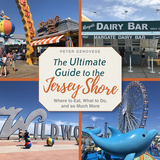

As Grant battled relentlessly down the Tennessee River and across Tennessee, defending Shiloh, he was followed by an enterprising group of studio photographers hoping to profit from the public’s demand for images of the rising general from the West. They never stopped because Grant never stopped. Thus far, 307 distinct photographs have been found of Ulysses S. Grant, revealing him to be the most photographed American of the nineteenth century.
Readers of Ulysses S. Grant: A Photographic History travel alongside Grant through the Civil War and his two terms as president, on his unusual two-year journey around the world, and to his final days on Mount McGregor. The sheer volume of exposure shows the toll of duty, war, and command. From every angle, this collection captures Grant’s regard for soldier and family, his disregard of uniform, and his disheveled appearance that reflected his resilience. The reader will look into the eyes of a man who saw the worst and labored for the best.
This curated volume opens the largest collection of Grant photos to the public for the first time. Excerpts from Grant’s personal writings divulge his candid thoughts about the people he posed with and the situations he faced around the time the photographs were taken. An extraordinary addition to Grant scholarship, Ulysses S. Grant: A Photographic History will be the photographic reference work on Grant for decades to come as the simple man from Ohio continues to astonish the world.
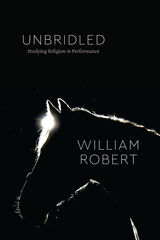
In Unbridled, William Robert uses Equus, Peter Shaffer’s enigmatic play about a boy passionately devoted to horses, to think differently about religion. For several years, Robert has used Equus to introduce students to the study of religion, provoking them to conceive of religion in unfamiliar, even uncomfortable ways. In Unbridled, he is inviting readers to do the same.
A play like Equus tangles together text, performance, practice, embodiment, and reception. Studying a play involves us in playing different roles, as ourselves and others, and those roles, as well as the imaginative work they require, are critical to the study of religion. By approaching Equus with the reader, turning the play around and upside-down, Unbridled transforms standard approaches to the study of religion, engaging with themes including ritual, sacrifice, worship, power, desire, violence, and sexuality, as well as thinkers including Judith Butler, Sigmund Freud, Karl Marx, Friedrich Nietzsche, and Jonathan Z. Smith. As Unbridled shows, the way themes and theories play out in Equus challenges us to reimagine the study of religion through open questions, contrasting perspectives, and alternative modes of interpretation and appreciation.
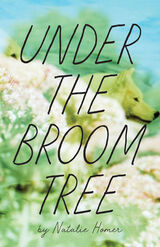
In the story of the prophet Elijah, he must flee his home, and, after an arduous journey, he arrives under a broom tree, where he prays for his own death. But in his sleep, he is touched by an angel who provides food and water. In this moment, the broom tree becomes a symbol for shelter in a barren landscape, a portent of hope and renewal.
Drawing inspiration from this tale, Natalie Homer’s debut poetry collection is a trek through the wildernesses of the heart and of the natural world. Exploring the idea of divine providence, Homer finds seams of light opening between forlorn moments and locates, “Something to run a finger through, / something to shine in the ocher light.” Within these narrow spaces, Homer explores themes of longing, home, family, and self-worth amidst the wondrous backdrop of the American West and the Rust Belt, while integrating a rich mythology of narrative, image, and association. The broom tree, offering the capacity for shade and respite, becomes a source of connection and an inspiration for the collection. It is an invitation to sink deep into the earth and self and feel the roots entwine.
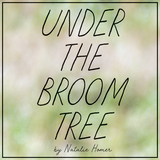
In the story of the prophet Elijah, he must flee his home, and, after an arduous journey, he arrives under a broom tree, where he prays for his own death. But in his sleep, he is touched by an angel who provides food and water. In this moment, the broom tree becomes a symbol for shelter in a barren landscape, a portent of hope and renewal.
Drawing inspiration from this tale, Natalie Homer’s debut poetry collection is a trek through the wildernesses of the heart and of the natural world. Exploring the idea of divine providence, Homer finds seams of light opening between forlorn moments and locates, “Something to run a finger through, / something to shine in the ocher light.” Within these narrow spaces, Homer explores themes of longing, home, family, and self-worth amidst the wondrous backdrop of the American West and the Rust Belt, while integrating a rich mythology of narrative, image, and association. The broom tree, offering the capacity for shade and respite, becomes a source of connection and an inspiration for the collection. It is an invitation to sink deep into the earth and self and feel the roots entwine.
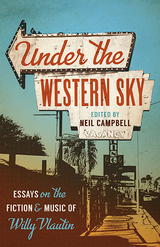
Brutally honest, raw, gritty, down to earth, compassionate and affecting, Willy Vlautin’s writing evokes a power in not only theme, but in methodology. Vlautin’s novels, The Motel Life, Northline, Lean on Pete and The Free (2006-2014) chart the dispossessed lives of young people struggling to survive in difficult economic times and in regions of the U.S. West and Pacific Northwest traditionally viewed as affluent and abundant. Yet as his work shows, are actually highly stratified and deprived.
Likewise, Vlauntin’s songs, penned as lead singer of the Americana band Richmond Fontaine chart a related territory of blue-collar landscapes of the American West and Northwest with a strong emphasis on narrative and affective soundscapes evocative of the similar worlds defined in his novels.
Featuring an interview with Vlautin himself, this edited collection aims to develop the first serious, critical consideration of the important novels and songs of Willy Vlautin by exploring relations between region, music, and writing through the lens of critical regionality and other interdisciplinary, cultural, and theoretical methodologies. In so doing, it will situate his work within its regional frame of the American New West, and particularly the city of Reno, Nevada and the Pacific Northwest, whilst showing how he addresses wider cultural and global issues such as economic change, immigration shifts, gender inequality, and the loss of traditional mythic identities.
The essays take different positions in relation to considerations of both novels and music, looking for links and relations across genres, always mindful of their specificity. Under the Western Sky shows how although apparently rooted in place, Vlautin’s work traces diverse lines of contemporary cultural enquiry, engaging in an effective and troubling examination of regional haunting.

Julie Carr’s deeply intimate collection, Underscore, is dedicated to two of Carr’s foundational teachers, the dancer Nancy Stark Smith and the poet Jean Valentine, both of whom died in 2020. Elegiac, tender, and at times erotic or bitter, these poems explore the passions of friendship and love for the living as well as the dead. Carr’s lyric poetry expresses the intricate many-layered relationships between individuals who are constantly shifting in their roles with one another. She considers otherness and nature while remaining deeply invested in human relationships and exploring the conflict of maintaining one’s own interiority amid a life whose backdrop is human suffering.
Reaching toward the “ghost companions in the thicket” and to the beloveds who still “pulse with activity,” Underscore’s sonically intricate poems express a longing for dynamic forces of intra-action, a sense of expanded encounter, and what Stark Smith called “overlapping kinespheres.”
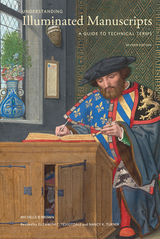
Updated to reflect current research and technologies, this beautifully illustrated guide includes images of important manuscript illuminations from the collection of the J. Paul Getty Museum and beyond. Concise, readable explanations of the technical terms most frequently encountered in manuscript studies make this portable volume an essential resource for students, scholars, and readers who wish a deeper understanding and enjoyment of illuminated manuscripts and medieval book production.
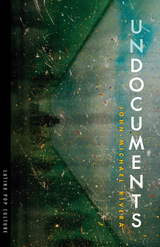
How do you document the undocumented? UNDOCUMENTS both poses and attempts to answer this complex question by remixing the forms and styles of the first encyclopedia of the New World, the Florentine Codex, in order to tell a modern story of Greater Mexico. Employing a broad range of writing genres and scholarly approaches, UNDOCUMENTS catalogs, recovers, and erases documents and images by and about peoples of Greater Mexico from roughly the first colonial moment. This brave and bracing volume organizes and documents ancient New World Mexican peoples from the Florentine Codex (1592) to our current technology-heavy age, wherein modern lawmakers and powerful global figures desire to classify, deport, and erase immigrants and their experiences.
While grappling with anxiety and the physical and mental health consequences of the way the United States treats immigrant bodies, John-Michael Rivera documents and scrutinizes what it means to seek opportunities in America. With a focus on the poetics of Latinx documentality itself, this book is concerned with the complicated and at times contradictory ways peoples of Greater Mexico have been documented and undocumented within systems of colonial knowledges, and how these peoples have been rendered as specters of the bureaucratic state. Rivera takes us through the painful, anxiety-ridden, and complex nature of what it means to be documented or undocumented, and the cruelty married to each of these states of being.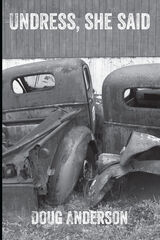
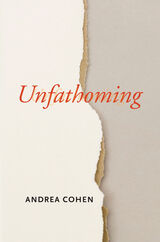
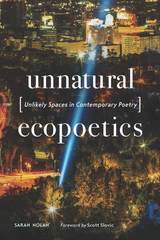
By approaching environments in a new way, Nolan closes this gap and recognizes how contemporary poets employ self-reflexive commentary and formal experimentation in order to create new natural/cultural environments on the page. She proposes a radical new direction for ecopoetics and deploys it in relation to four major American poets. Working from literal to textual spaces through the contemporary poetry of A.R. Ammons’s Garbage, Lyn Hejinian’s My Life, Susan Howe’s The Midnight, and Kenneth Goldsmith’s Seven American Deaths and Disasters, the book presents applications of unnatural ecopoetics in poetic environments, ones that do not engage with traditional ideas of nature and would otherwise remain outside the scope of ecocritical and ecopoetic studies.
Nolan proposes a new practical approach for reading poetic language. Ecocriticism is a very fluid and evolving discipline, and Nolan’s pioneering new book pushes the boundaries of second-wave ecopoetics—the fundamental issue being what is nature/natural, and how does poetic language, particularly self-conscious contemporary poetic agency, contribute to and complicate that question.


The Tale of Genji (ca. 1008), by noblewoman Murasaki Shikibu, is known for its sophisticated renderings of fictional characters’ minds and its critical perspectives on the lives of the aristocracy of eleventh-century Japan. Unreal Houses radically rethinks the Genji by focusing on the figure of the house. Edith Sarra examines the narrative’s fictionalized images of aristocratic mansions and its representation of the people who inhabit them, exploring how key characters in the Genji think about houses in both the architectural and genealogical sense of the word.
Through close readings of the Genji and other Heian narratives, Unreal Houses elucidates the literary fabrication of social, architectural, and affective spaces and shows how the figure of the house contributes to the structuring of narrative sequences and the expression of relational nuances among fictional characters. Combining literary analysis with the history of gender, marriage, and the built environment, Sarra opens new perspectives on the architectonics of the Genji and the feminine milieu that midwifed what some have called the world’s first novel.

Henry David Thoreau’s interest in Native Americans is widely known and a recurring topic of scholarly attention, yet it is also a source of debate. This is a figure who both had a deep interest in Native American history and culture and was seen by many of his contemporaries, including Ralph Waldo Emerson and Nathaniel Hawthorne, as “more like an Indian” than his white neighbors. At the same time, Thoreau did little to protest the systematic dispossession of Indigenous people across the country in his lifetime. John J. Kucich charges into this contradiction, considering how Thoreau could demonstrate respect for Native American beliefs on one hand and ignore the genocide of this group, actively happening throughout his life, on the other. Thoreau’s long study of Native peoples, as reflected in so much of his writing, allowed him to glimpse an Indigenous worldview, but it never fully freed him from the blind spots of settler colonialism.
Drawing on Indigenous studies and critiques of settler colonialism, as well as new materialist approaches that illustrate Thoreau’s radical reimagining of the relationship between humans and the natural world, Unsettling Thoreau explores the stakes of Thoreau’s effort to live mindfully and ethically in place when living alongside, or replacing marginalized peoples. By examining the vast sweep of his writings, including the unpublished Indian Notebooks, and placing them alongside Native writers and communities in and beyond New England, this book gauges Thoreau’s effort to use Indigenous knowledge to reimagine a settler colonial world, without removing him from its trappings.
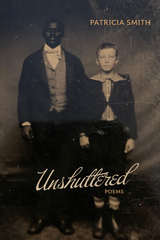
An award-winning author presents a portrait of Black America in the nineteenth century
Over the course of two decades, award-winning poet Patricia Smith has amassed a collection of rare nineteenth-century photographs of Black men, women, and children who, in these pages, regard us from the staggering distance of time.
Unshuttered is a vessel for the voices of their incendiary and critical era. Smith’s searing stanzas and revelatory language imbue the subjects of the photos with dynamism and revived urgency while she explores how her own past of triumphs and losses is linked inextricably to their long-ago lives:
We ache for fiction etched in black and white. Our eyes never touch. These tragic grays and bustles, mourners’
hats plopped high upon our tamed but tangled crowns, strain to disguise what yearning does with us.
The poet’s unrivaled dexterity with dramatic monologue and poetic form reanimates these countenances, staring back from such yesterdays, and the stories they may have told. This is one of American literature’s finest wordsmiths doing what she does best—unreeling history to find its fierce and formidable lyric.
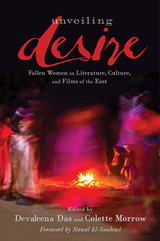
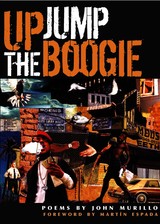
"The feel of now lives in John Murillo's UP JUMP THE BOOGIE, but it's tempered by bows to the tradition of soulful music and oral poetry. The lived dimensions embodied in this collection say that here's an earned street knowledge and a measured intellectual inquiry that dare to live side by side, in one unique voice. The pages of UP JUMP THE BOOGIE breathe and sing; the tributes and cultural nods are heartfelt, and in these honest poems no one gets off the hook."—Yusef Komunyakaa
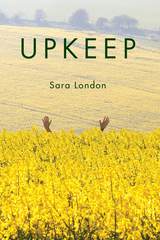
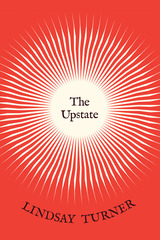
Set in a landscape of red sunsets and wildfire smoke, Queen Anne’s lace on the roadsides, and toxic chemicals in the watershed, Lindsay Turner’s The Upstate is a book about southern Appalachia in a contemporary moment of change and development. Layering a personal lyric voice with a broader awareness of labor issues and political and ecological crises, The Upstate redefines a regional poetics as one attuned to national and global systems. These poems observe and emote, mourning acts of devastation and raging in their own quiet way against their continuation.
The poems in The Upstate arise from moments of darkness and desperation, mobilizing a critical intelligence against the status quo of place and history, all while fiercely upholding belief in the role of poetry to affect these conditions. Turner’s poems weave spells around beloved places and people, yearning to shield them from destruction and to profess faith in the delicate beauties of the world at hand.
READERS
Browse our collection.
PUBLISHERS
See BiblioVault's publisher services.
STUDENT SERVICES
Files for college accessibility offices.
UChicago Accessibility Resources
home | accessibility | search | about | contact us
BiblioVault ® 2001 - 2024
The University of Chicago Press


